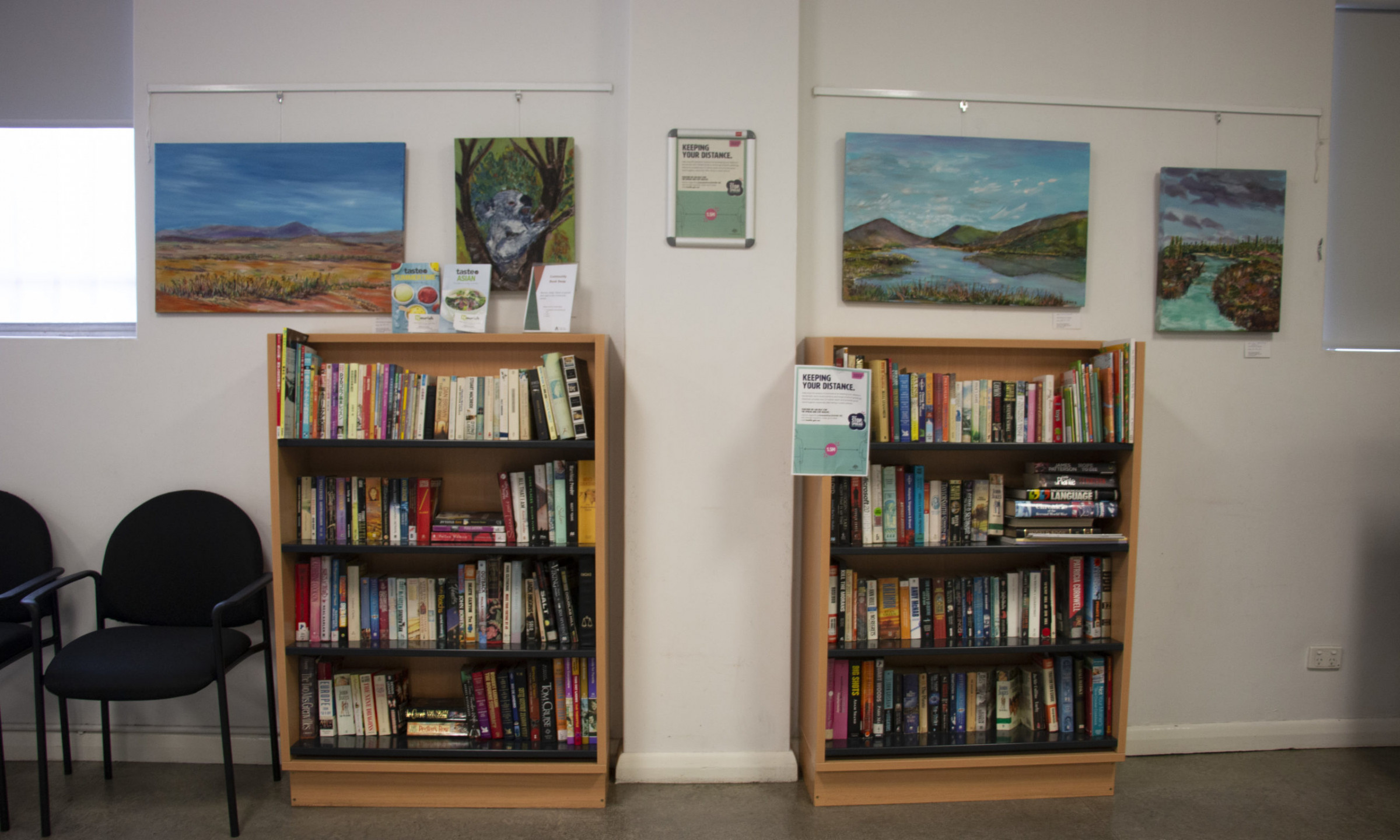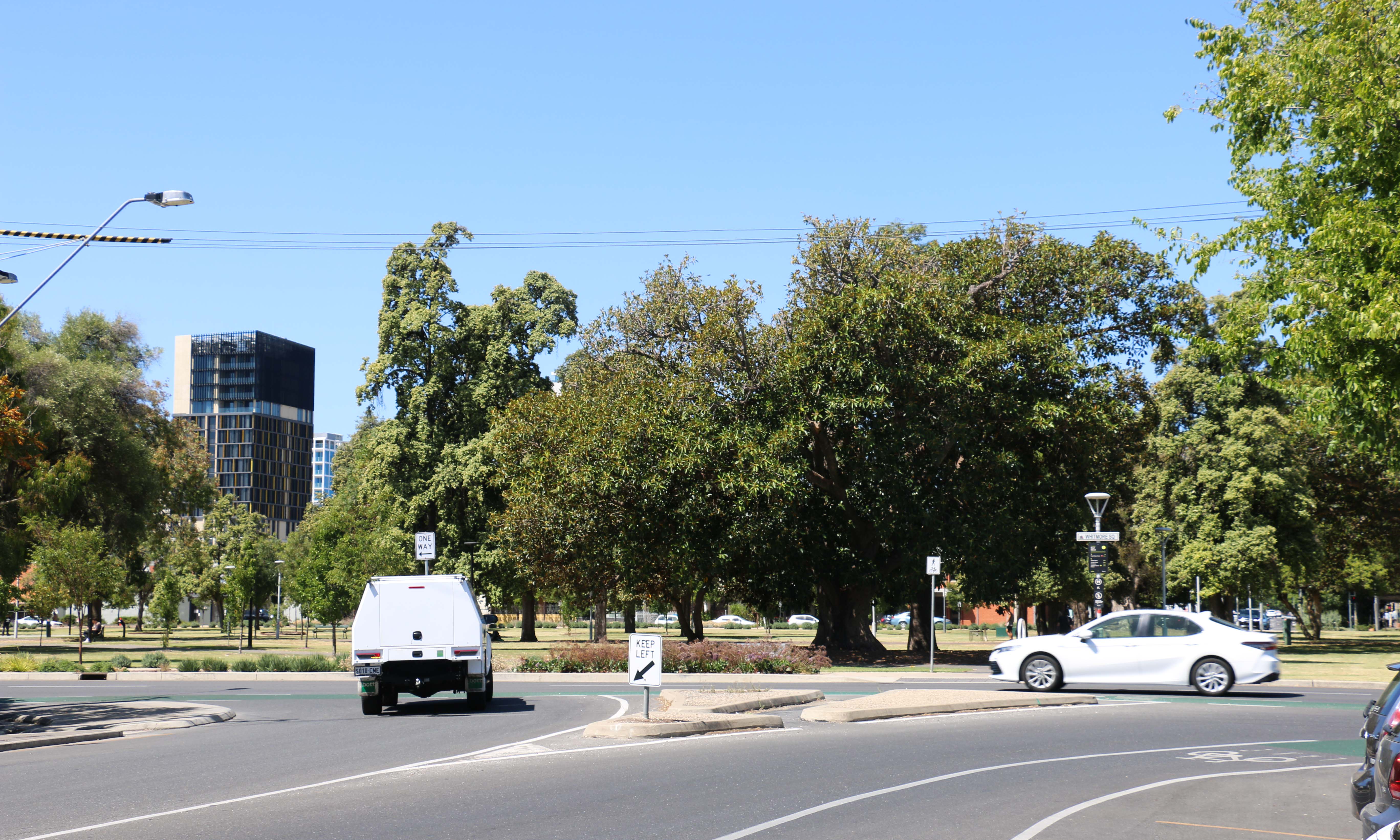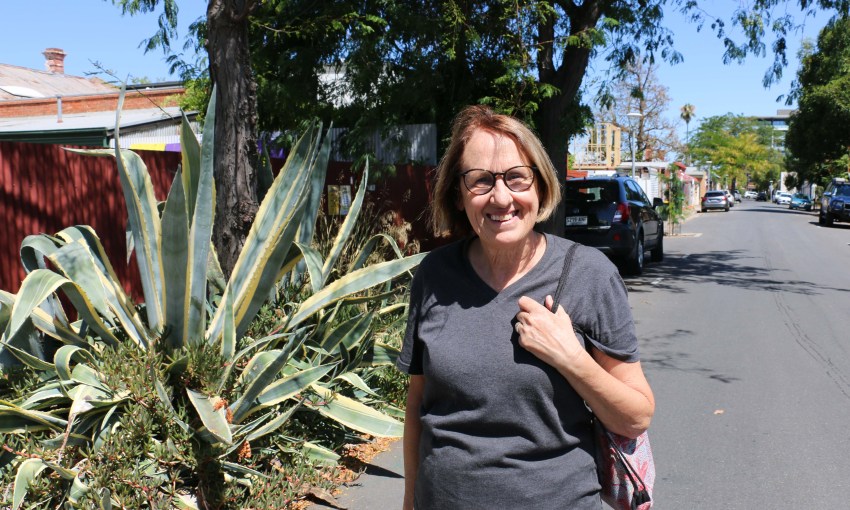The City of Adelaide has no shortage of plans for the future of the city, but in order to create a CBD that prioritises residents’ needs, the recently-installed city area councillor wants city-dwellers more involved in creating a bolder, broader vision.
Janet Giles’ Unified City Plan Theory
The way the design of the city’s economy has been conceptualised is askew, says area councillor Janet Giles.
“There’s been a priority of business over residents, and it’s based on a theory that the way we build the city is through business,” she says. “I just fundamentally disagree with that.”
—Janet Giles
This is an unsurprising remark from Janet, who spent three decades fighting for workers and people over bosses and businesses as a union representative.
She served as the Australian Education Union President from 1992—2002; SA Unions’ secretary from 2002—13; Australian Services Union’s director of campaigns and organising from 2014—17; and worked with the Public Service Association from 2017—21.
The platform Janet took to last year’s Adelaide City Council elections came from this history, and was based on concepts of equity and fighting for residential needs over developers and “big business”. Janet says she plans to put people at the centre of every decision she makes within local government.
“We’ve got huge potential in this place,” Janet says of the city while sipping on lemonade at Erb ‘N’ Flo — a café near Whitmore Square, her locale of more than 10 years. “There’s so many great people who live in the city and if we allow them to have a voice and participate, I think we’ll find that amazing things will happen.”

Janet Giles — your friendly neighbourhood councillor
As a long-term resident, Janet recognises that the city’s south west needs some love. There is no community library on this side of town — the three city council libraries are at Rundle Mall, Hutt Street and North Adelaide — and there is a lack of trees and shade, she says.
“We have to reinvest in community development and community services,” Janet says. “For example, in this part of the city, we no longer have a community centre that’s in the area that it’s servicing, and we no longer have libraries and we just feel a bit forgotten.
“There’s places like the west of the city, where a lot of new apartments are being built now, where there seems to be [a] focus on the development of getting people to live there, but not a development of a community. There’s no community development plan and process with that.”
New here? Sign up to receive the latest happenings from around our city, sent every Thursday morning.

The South West Community Centre ‘library’ in 2020
Janet hopes to address these issues through the City of Adelaide’s 10-year Adelaide City Plan.
The council released the first tender documents for the 2023—2033 City Plan in February, calling for a lead consultant to develop the first arm. This will be delivered at the start of March, councillors will provide feedback in April, and the process will wrap up in June.
According to the tender package, the Adelaide City Plan will “facilitate and guide future growth and development” for the city’s next decade. It will also stay ahead of current and emerging issues, including the impacts of COVID-19, population growth, housing affordability and access, and climate change.
But it won’t be the only document plotting the future of the city.
The State Government has a 30-Year Plan for Greater Adelaide and the council already has a four-year 2020—2024 Strategic Plan.
It might seem that Adelaide already has enough plans, but, according to Janet, the problem is “we’ve got too many unconnected plans in the council”.
What this upcoming 10-year plan, which was originally conceived back in 2020, will do is help combat the unique challenges that came up as a result of the COVID-19 pandemic. It will connect all the council’s other plans and act as a kind of unified theory of Adelaide’s future.
In order to create such a document, Janet wants to see meaningful input sought from Adelaide’s residents.
“We’ve got to get over there and start doing something quite different and not go backwards because we can’t go backwards,” Janet says.
“The way I see it is that will involve the community and [asking] what sort of city do they want; how can we make sure we’re addressing climate change; how can we make it a thriving place for people and communities; and how do we involve people in the decision making in the city?”

Whitmore Square could be a “little bit Berlin”, with community markets, stalls and more, Janet says
Janet believes the Adelaide City Council combated the economic impacts of COVID-19 by throwing money at the business and events sectors. She says this has had an uneven impact on the city, and did not take into account residential needs.
“I understand that we needed to do some drastic things post-COVID to get people back into the city because the city was so dead, but my theory about the way that you create lively places, and places that help people to thrive and help the planet thrive, is you actually build a community up rather than just focus on business and events,” she says.
Putting residential needs front and centre would include being climate change ready, addressing the “housing crisis”, and advocating for homelessness services.
“One of the things that the last council did was move away from the whole housing question, and I don’t think we can do that anymore,” she says.
In November 2021, the Adelaide City Council sold off 20 affordable housing apartments above Café Troppo in Whitmore Square in an attempt to claw back COVID debt. In May last year, the council announced in its Homelessness, Social Housing & Housing Affordability 2022-2025 Policy it would facilitate and “advocate” rather than provide services for rough sleepers.
“The CoA does not have a role in the provision (direct delivery) of homelessness services, crisis accommodation, social housing and affordable housing,” the document says.
When asked whether the Plan should have quotas surrounding how many affordable or social housing units should be in the city, Janet doesn’t suggest that it become so prescriptive. Instead, she says the Plan should include “basic value principles” that are stronger than “motherhood statements”.
“But we’ve got great people who can take what we’re trying to do here, and actually draw on international and national experience about how you build a city in the 21st century,” she says.




